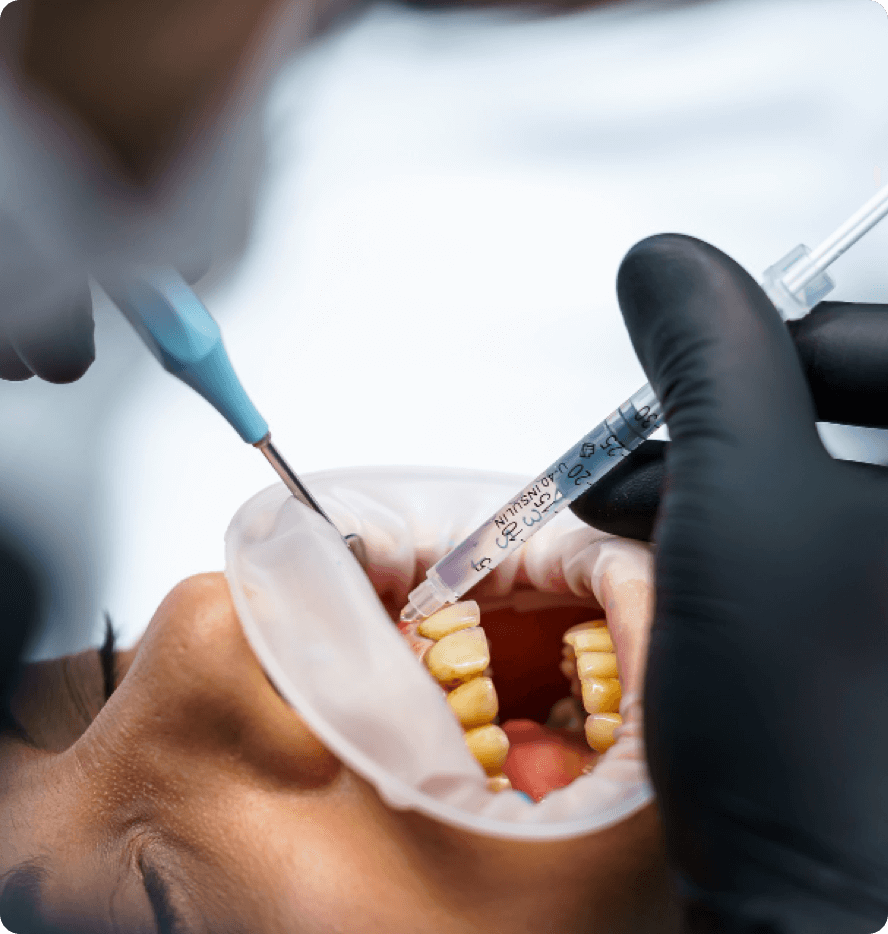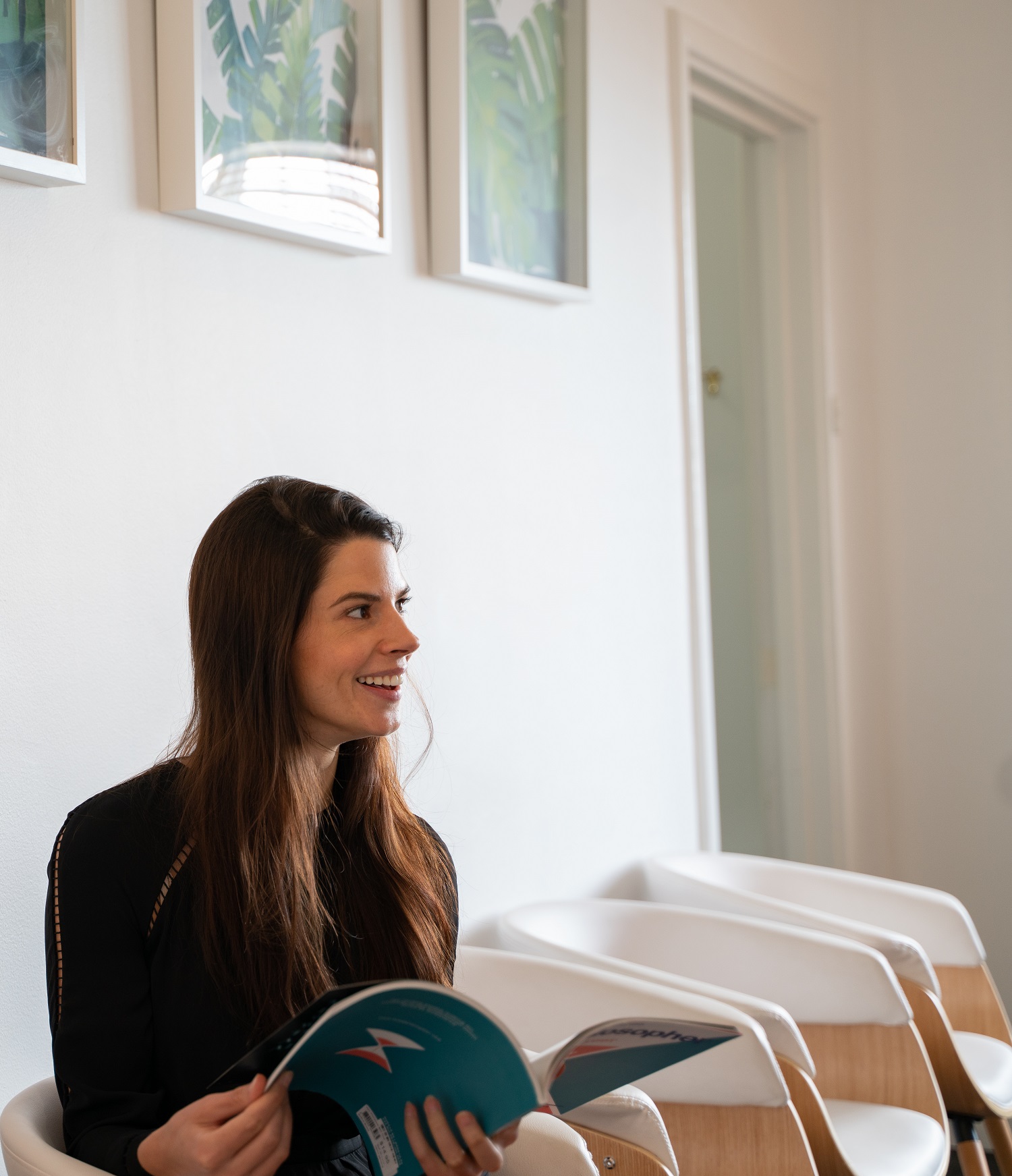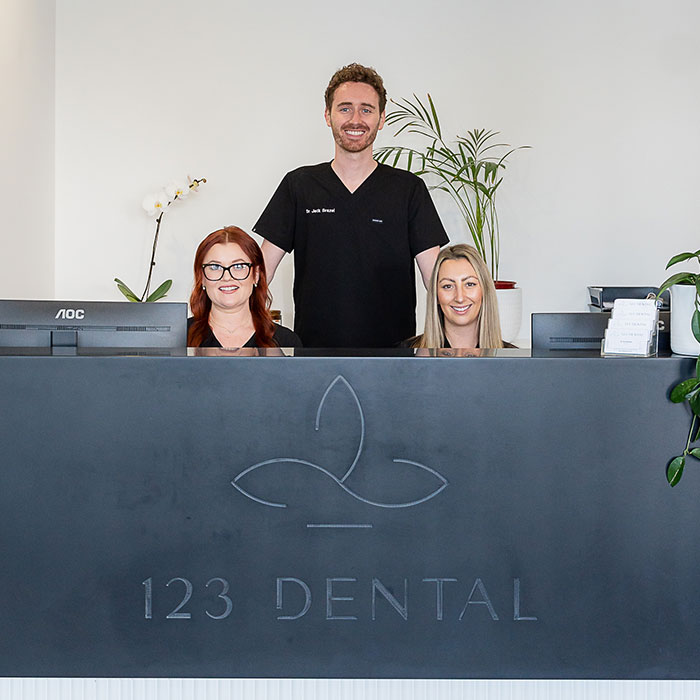
What is Sedation Dentistry?
Does the mere thought of having a fluoride treatment or your teeth cleaned cause your body to tense up in utter dread?
Would you rather suffer the pain and agony of an intense toothache than visit the dentist?
Guess what – you’re not alone. Many people have a phobia of visiting the dentist, so much so that they prefer to avoid treatment and not go at all.
If you’re one such person, sedation dentistry may be an option to relieve some of your anxiety. Sedation is often used for everything from root canals to simple teeth cleanings. The severity of the procedure and anxiety determines how it’s used.
By using sedation, we can overcome the traumas of dentistry. If you’ve been putting off years of dental work, sedation dentistry can change your life!
What is Used in Sedation Dentistry?
- Nitrous Oxide + Oxygen Sedation or “happy gas” is the most frequently used sedation method in dentistry. It is simply a gas which you breathe in; it’s colourless, sweet-smelling and non-irritating.
- Premedication is administered by taking prescribed tablets prior to your examination.
- Penthrox (inhalation anaesthesia sedation)
- I.V. Sedation also known as “deep conscious sedation”. With this type of sedation medications are administered directly into the bloodstream by a qualified anaesthetist.
- General anaesthesia can be performed at a day hospital should the need arise.
How does it work?
Sedation dentistry is the practice of using medication to sedate patients and help them relax during simple and complex dental procedures.
While sometimes called “sleep dentistry,” patients are typically awake during their procedures. Those who undergo general anesthesia for more involved dental procedures are the exception.
The different levels of sedation include:
Minimal sedation – When under minimal sedation, you’re relaxed but fully awake.
Moderate sedation – When under moderate sedation, formerly referred to as “conscious sedation,” you may feel drowsy, slur your words, and only remember bits of the procedure.
Deep sedation – When under deep sedation, you’re skirting the edge of consciousness but can be awakened when needed or immediately following the procedure.
General anesthesia – When under general anesthesia, you’re completely unconscious for an extended period of time.
Sedation is generally appropriate for individuals suffering from anxiety who need help relaxing and overcoming their fears of visiting the dentist.
However, sedation dentistry is also often appropriate for patients who:
Have a hard time sitting still in a dentist’s chair
Suffer from a low pain threshold
Have extremely sensitive teeth
Suffer from gag reflex
Need to undergo considerable dental work
Sometimes, sedation can even be appropriate for children who have a fear of the dentist or need help cooperating during their visit. Almost any dentist can administer nitrous oxide, and it is generally safe for children.
For extreme cases and serious paediatric dental work, a paediatric dentist may be needed to administer stronger oral sedation. Oral sedation can be safe when the dose falls within the recommended dosage guidelines for the age and weight of the child.
The majority of dentists are capable of administering nitrous oxide, pills, and other forms of minimal sedation. In fact, more and more dentists are administering moderate sedation as well.
However, only a small number of dentists who have undergone advanced training and accreditation can administer general anaesthesia and deep sedation as these require special knowledge, skills, and complex techniques.
In most cases, these dentists are in fact dentist anaesthesiologists or oral and maxillofacial surgeons who have been specially trained to administer all types of anaesthesia and achieve all levels of sedation.
Since the use of sedation is carefully regulated, many dentists are required to hold special permits in order to administer sedation.
Our Dental Team Can Help You Get Your Perfect Smile!
At 123 Dental, we believe patient comfort translates to quality care. If you’re anxious about visiting our office, feel free to contact us to discuss our sedation dentistry training, practices, and track record of success.





